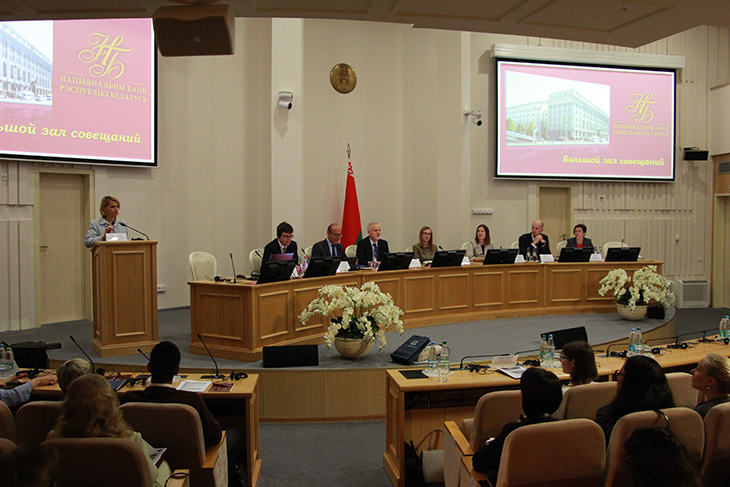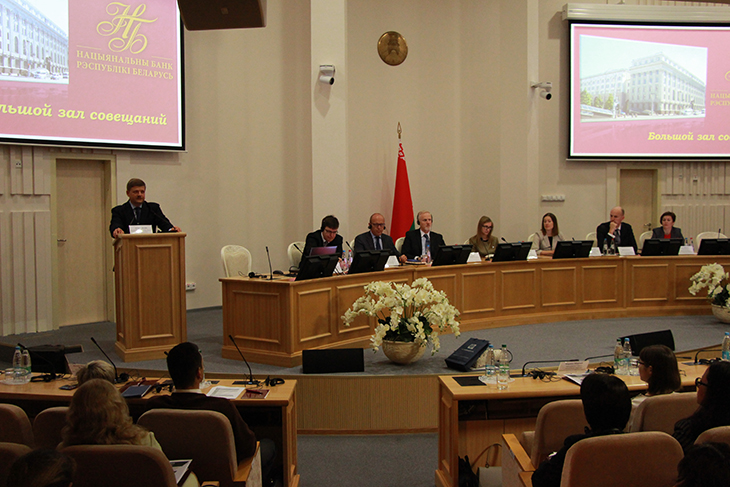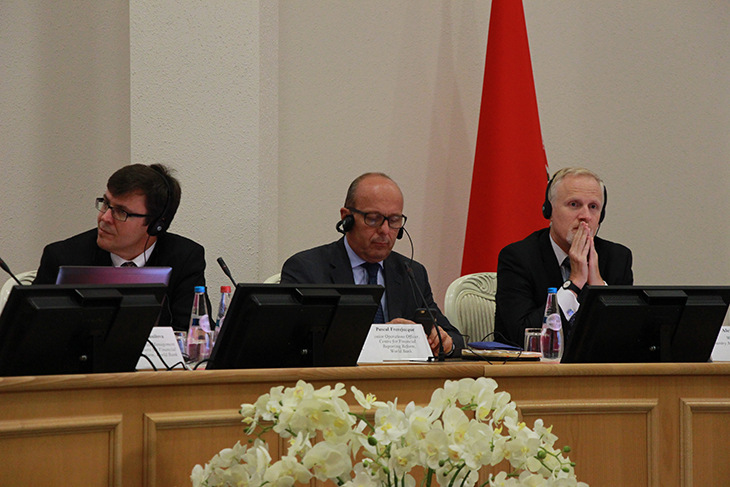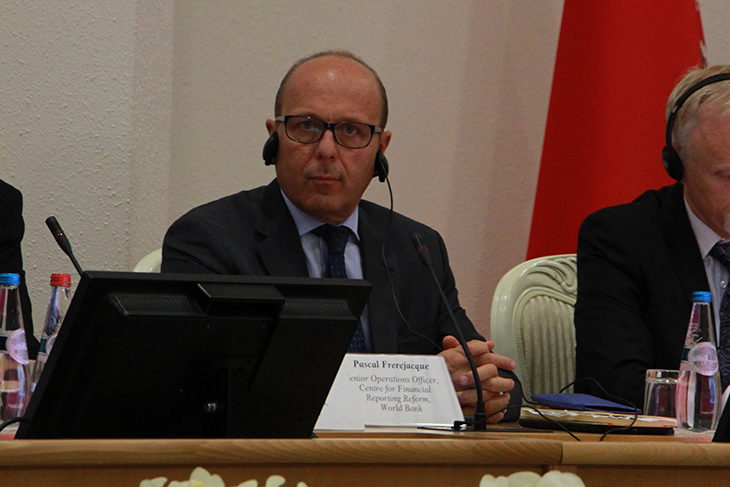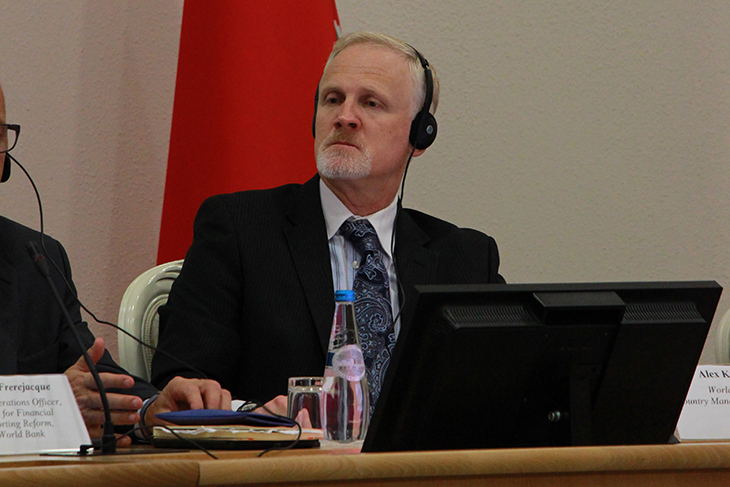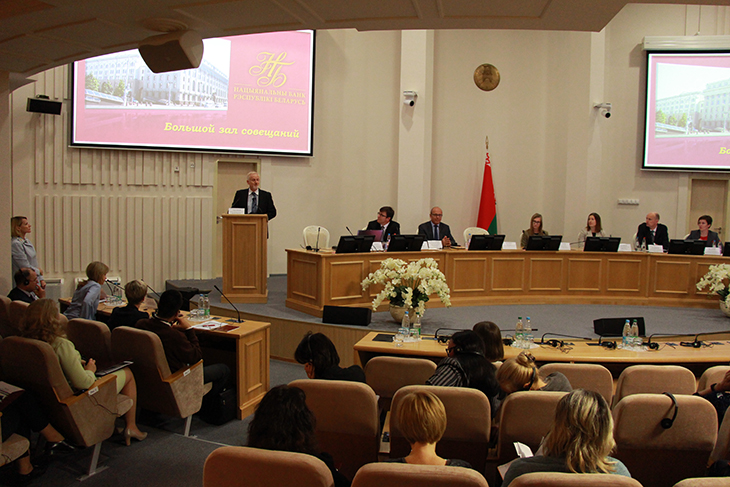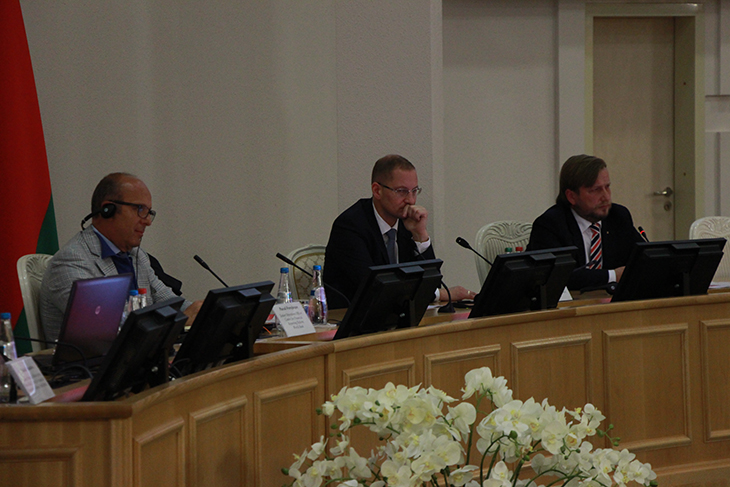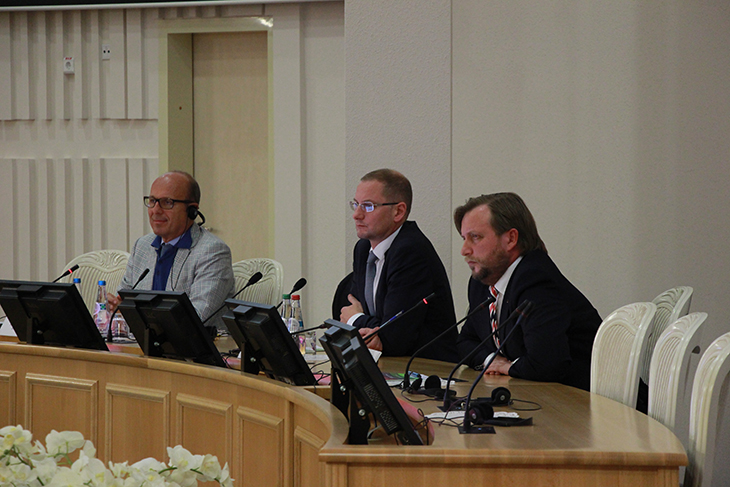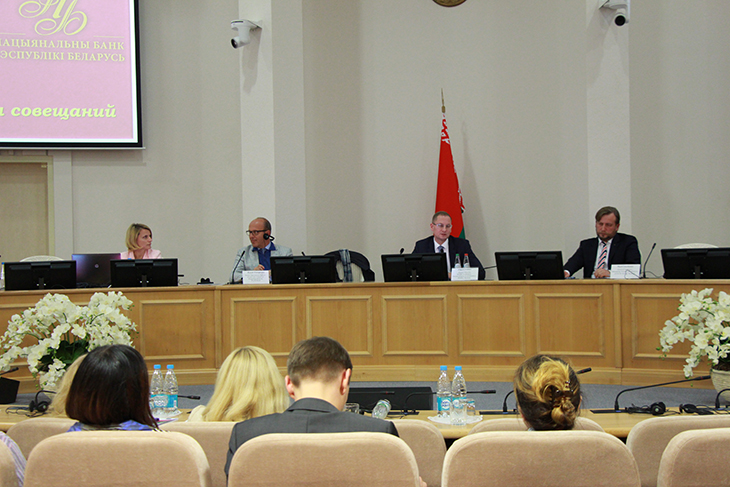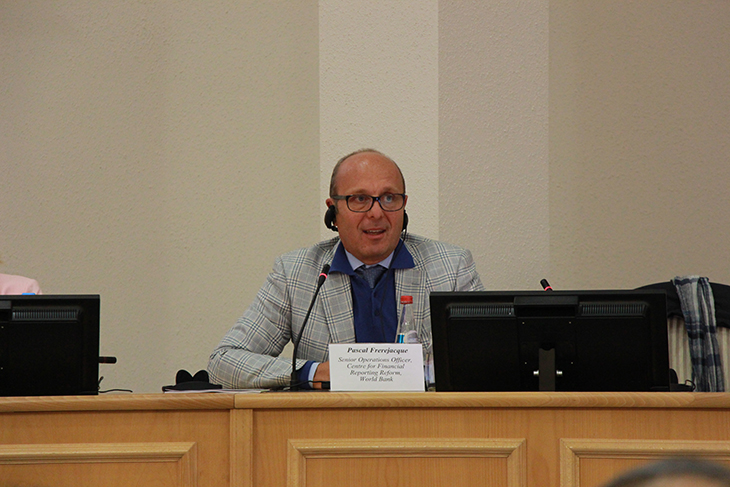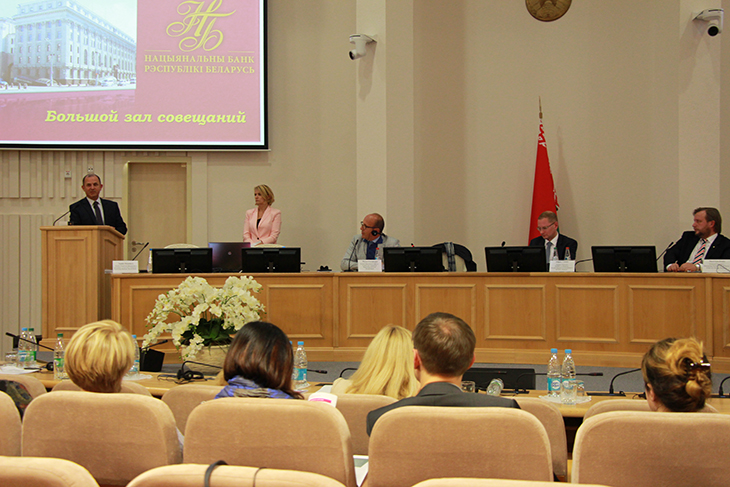The new International Financial Reporting Standard 9 (IFRS 9) Financial Instruments comes into effect starting January 1, 2018, for all entities reporting under the IFRS. This new standard is the biggest change in 10 years in the accounting for financial instruments, fundamentally redrafting the accounting rules, replacing the incurred loss impairment model with a more forward looking expected loss model, as well as bringing new methodology for financial instruments classification. In transition of the Belarus banking sector to IFRS 9, it is essential that those responsible for arriving at financial estimations and preparing financial statements, and for banking supervisors to understand and confidently apply the key principles of IFRS 9, sustaining an ongoing dialogue during this complex change process.
In support of this transition, the CFRR organized two-day workshop for the National Bank of the Republic of Belarus with speakers and panelists, including the World Bank’s CFRR senior staff, experts in accounting standards setting, and representatives of commercial banks and audit firms. The workshop, delivered on September 18-19, 2017 in Minsk, focused on strengthening the regulator’s understanding of the new IFRS 9, reviewed similarities and differences between equity calculations under IFRS and prudential norms, and explored avenues for better cooperation between regulators and auditors to contribute to better supervision of the banking sector. Over 40 representatives of Banking Supervision, Internal Audit, Risk Management and Accounting Methodology departments of the National Bank of the Republic of Belarus took part in this workshop to gain a better insight into the transition to IFRS 9 and the challenges this transition poses for all stakeholders: commercial banks, regulators, auditors and users of financial statements. The event helped participants become better acquainted with IFRS 9; and raised their awareness of the extensive preparations undertaken by commercial banks to assess people, processes, technology and controls that are necessary to drive an effective implementation. The workshop also helped to realize the need in establishing a constructive relationship between supervisors and external auditors to improve the quality and effectiveness of banking supervision. Participants engaged in interactive discussions with leading audit firms and commercial banks highlighting the need to sustain such a dialogue on a continuing basis.
The World Bank’s CFRR is grateful to the management of the National Bank of the Republic of Belarus, Prior Bank, VTB Bank Belarus, KPMG and E&Y for delivering this workshop, which have strengthened the capacity and practical skills of the NBRB staff, and established a platform for open an improved communication between the regulator, commercial banks and external auditors.
